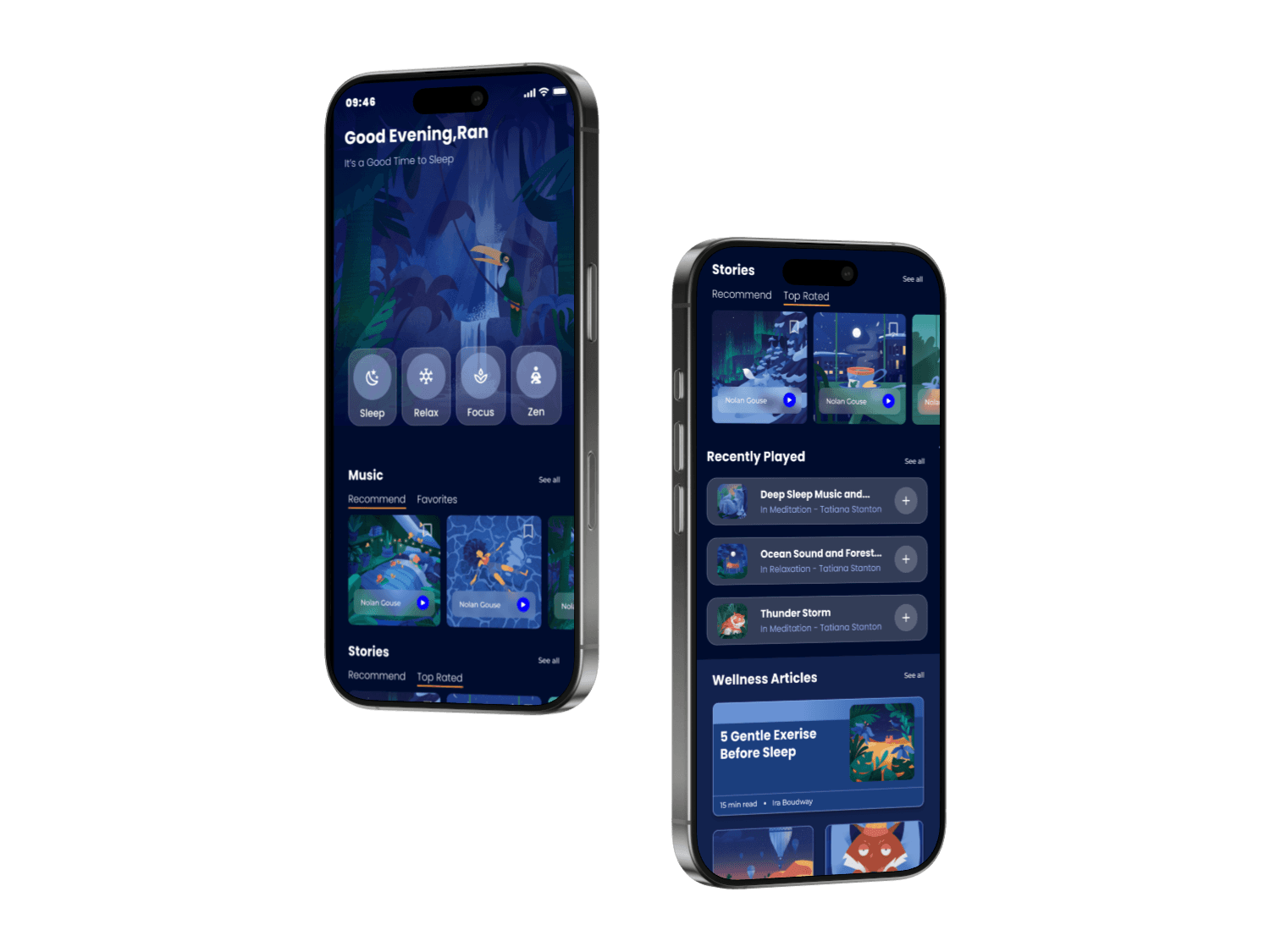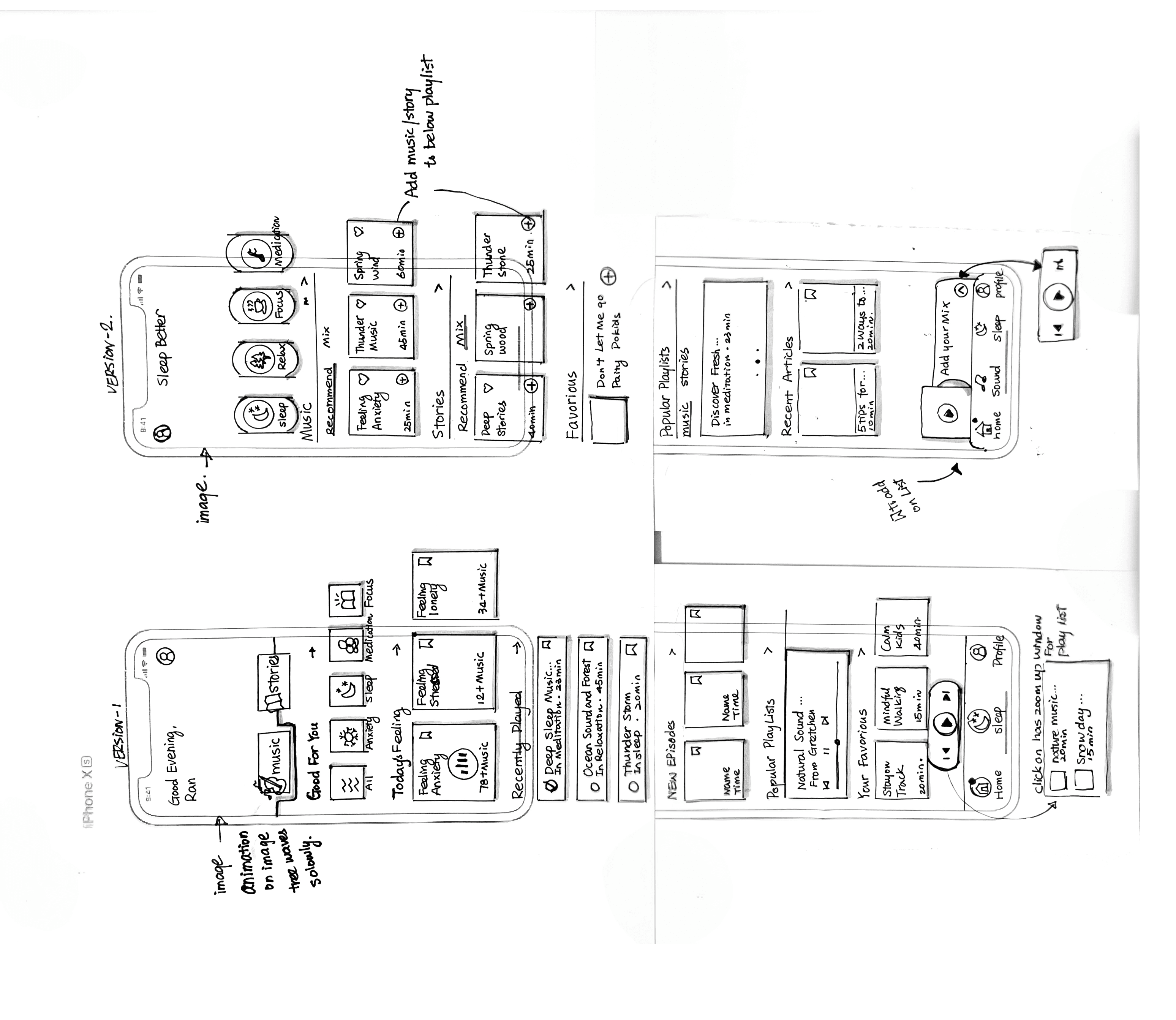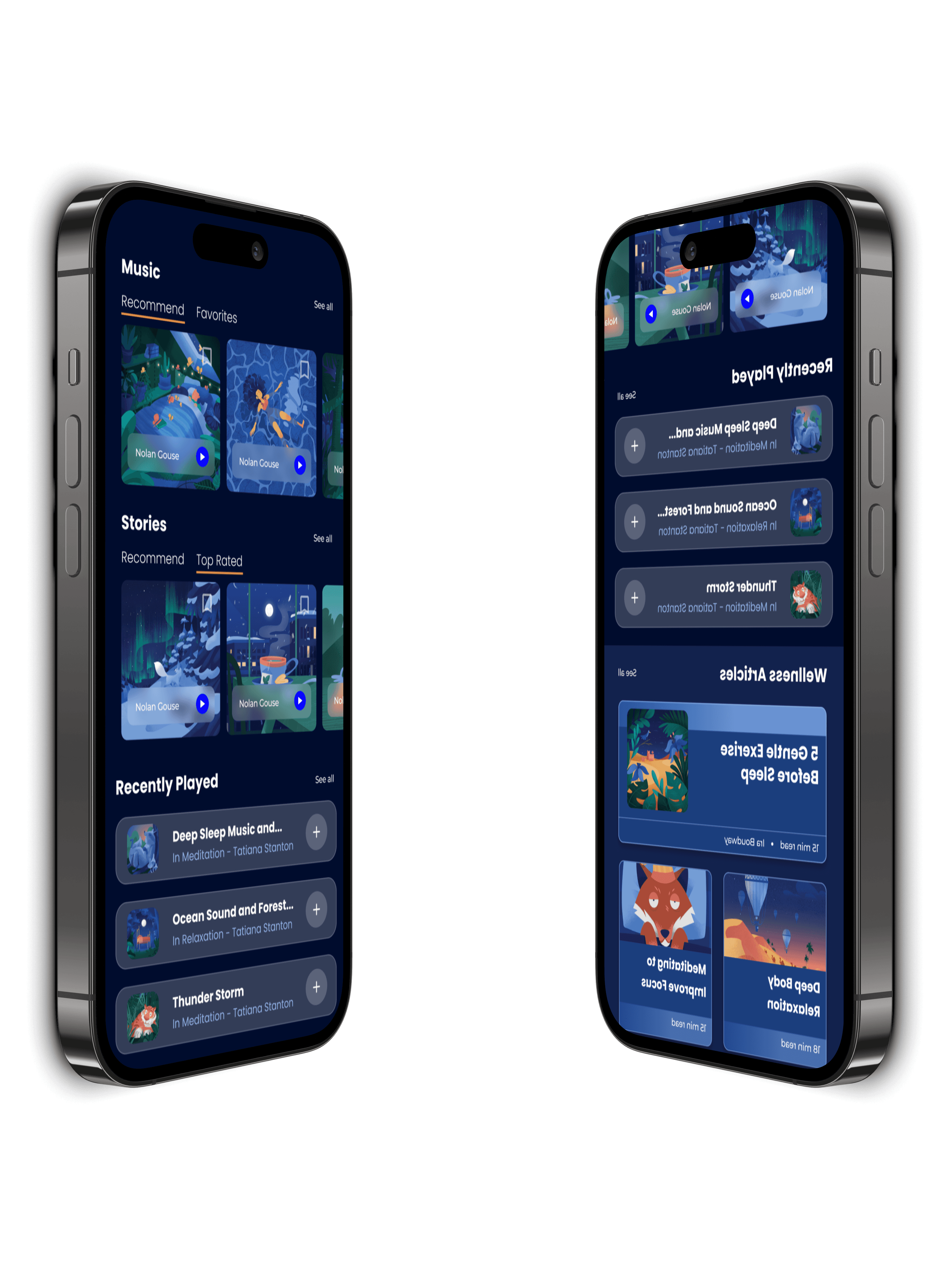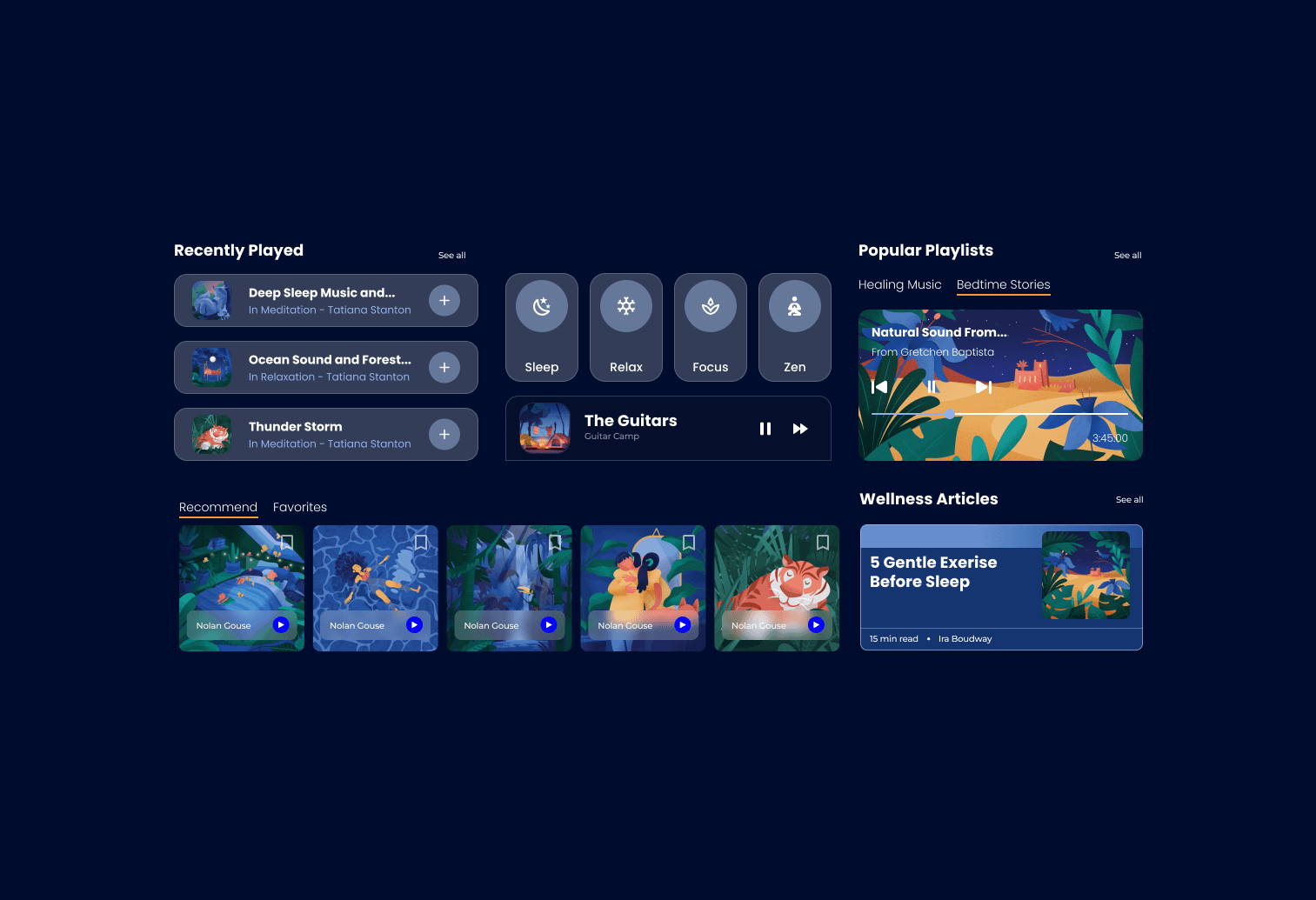Healthcare App: Wellness Tech for Restful Sleep
Healthcare App: Wellness Tech for Restful Sleep
Healthcare App: Wellness Tech for Restful Sleep
Time
Health & Wellness Tech
Project
Wellness Tech for Improved Sleep


A wellness-focused app designed to improve relaxation and sleep quality through personalized tools
A wellness-focused app designed to improve relaxation and sleep quality through personalized tools
A wellness-focused app designed to improve relaxation and sleep quality through personalized tools
Redesign the homepage of a medication app to simplify navigation and enhance user engagement. The result of increased feature utilization by 40%, reduced drop-off rates by 25%, and enhanced satisfaction through a soothing, intuitive design. Key Challenges: ➡️ Feature Overload: The app offers numerous features, leading to an overwhelming user experience. ➡️ Undefined User Types: Lack of tailored experiences for different user needs. ➡️ Inconsistent Visual Design: Graphical elements lacked cohesion, affecting user satisfaction.
Redesign the homepage of a medication app to simplify navigation and enhance user engagement. The result of increased feature utilization by 40%, reduced drop-off rates by 25%, and enhanced satisfaction through a soothing, intuitive design. Key Challenges: ➡️ Feature Overload: The app offers numerous features, leading to an overwhelming user experience. ➡️ Undefined User Types: Lack of tailored experiences for different user needs. ➡️ Inconsistent Visual Design: Graphical elements lacked cohesion, affecting user satisfaction.
Redesign the homepage of a medication app to simplify navigation and enhance user engagement. The result of increased feature utilization by 40%, reduced drop-off rates by 25%, and enhanced satisfaction through a soothing, intuitive design. Key Challenges: ➡️ Feature Overload: The app offers numerous features, leading to an overwhelming user experience. ➡️ Undefined User Types: Lack of tailored experiences for different user needs. ➡️ Inconsistent Visual Design: Graphical elements lacked cohesion, affecting user satisfaction.
Figma Link
Figma Link
Figma Link





